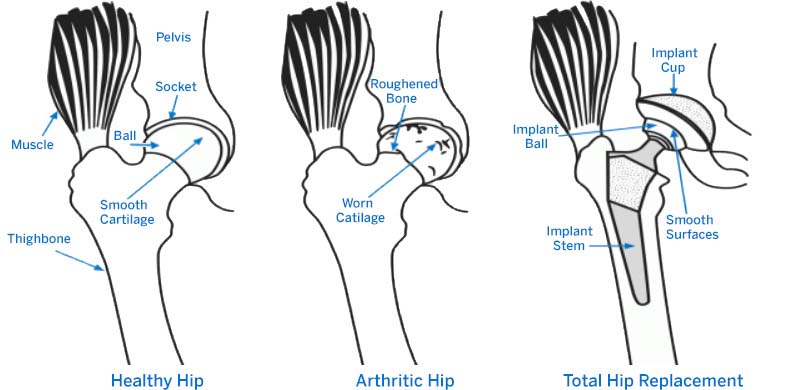But importantly regarding pre hip replacement the hip needs to be identified as the source of pain and dysfuncton and any back issues need to be identified and treated before hip replacement.
Best hip replacement for younger patients.
This is important for younger patients who are generally more active and put more demands and stress on their hip after surgery.
The only way to know if these goals will be met is to use the implant in people preforming normal activities and then follow their results for decades.
Once reserved for elderly patients hip replacement surgery is becoming more common in the younger active.
Clohisy notes that for young very active patients even if they get a great result most surgeons have a tendency to try and moderate their activities a bit after hip replacement.
Low back issues can refer pain to the hip and low back issues often result in poorer outcomes in hip replacement.
Trend to younger patients.
Patients who are in good general health do not smoke are motivated and have a good support team at home are the best candidates.
However concerns arise when a patient in his 40s 50s or younger has severe hip arthritis that is not relieved with non operative treatments.
In 2000 the average age was just over 66.
Sans is a great tool for anyone.
Most patients have a total hip replacement thr where a damaged hip joint is completely replaced with an artificial one.
In 2014 it was 64 9.
According to an early study of 75 people who had hip replacement surgery due to osteoarthritis it was common for patients to reach a plateau in their progression around 30 to 35 weeks post surgery.
The ideal hip replacement implant will allow for normal activities normal motion and last the patient s lifetime.
However this procedure has been reported to fail in younger patients with more active lifestyles the stiff metal stem in the thigh bone can cause trouble.
Hip replacement surgery has long been used to treat hip arthritis in elderly patients.
If you can answer yes to all of the below questions you may be able to have outpatient hip replacement surgery.
This is typically carried out on people between the ages of 60 and 80.
Dual mobility hip replacement studies in younger patients.










